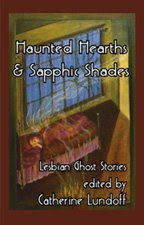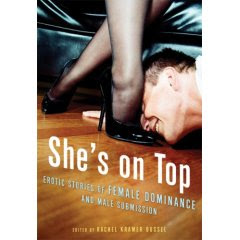I went to D. Travers Scott's reading at Skylight books Friday night. Finally got to meet Matty Lee (35 Cents), and Tony Valenzuela from Lambda Literary, plus a few other people from the LA queer literati. AS they were started the reading, the guy from Skylight introduced writers in the audience, which was cool, but I was shocked when he said my name. All I can figure was that he asked Trebor Healey to point out people ahead of time, and Trebor generously added me to the list.
Afterward, Matty, Trebor and a writer I was just introduced to but can't remember his name (always have business cards on you is the lesson here) walked down the street to the Dresden Room for cocktails. Dresden room could be straight out of Mad Men. There was a jazz combo, and it was good, but it made conversation tricky. Several times we held a thought until a song ended, rushed out the words, and hoped to get a reply before the next song started. Every time we go there for drinks, I feel as if I've finally managed to sneak into one of those forbidden magical grown-up places. And I always regret not having dressed up a bit more. I may get flustered being recognized as a writer, but sipping my vodka on the rocks in a so-retro-its-chic hipster hangout, I almost felt sophisticated.
Sunday, November 22, 2009
Tuesday, November 17, 2009
Monday, November 09, 2009
I've Had Better Ideas
At the time, the espresso seemed like a good idea, but by 1AM, sleep was still impossible. One bad idea doesn't necessarily lead to another though. I used the time to think about a science fiction story I wrote for an anthology. It was rejected, but they asked me to think about turning it into a novella. And thought about it, I did. What else was I going to do in the middle of the night?
As I was reading a few writer's blogs today, it seemed that everyone was lamenting unfinished novels. I know how it is. You're so excited about an idea, and the first couple chapters just flow. Then nothing. You lose faith. You fall out of love with your idea. You set it aside and go on to a better idea. And then there you are again, with 40,000 words down, and that novel isn't working either.
The first year I went to Saints and Sinners literary conference, I sat in on a great class led by Jim Grimsley called "The Murk in the Middle of the Novel." Jim talked about how we lose our way in the middle of a story. Novels, he said, were too big to hold in our imagination in one big piece, so we deal with parts. The problem comes when you're over the first part, where characters needed to be fleshed out, the scene set, and the plot put into motion. That's an exciting time. Then we get past that part and can't figure out where to go from there.
Walking away from a novel when you're not sure where to go next isn't always a mistake. Sometimes, we need some distance to be able to see the picture clearly again. While in the National Gallery years ago, I got to the point where I was numb to the art, so I stopped paying attention. I remember thinking that one of the paintings I passed was an ungodly mess. Wanting to get the visit over with, I moved on the next gallery, but my group lagged behind, so I went back to see what was keeping them. And oh my god. That ungodly mess across the gallery was Monet's Waterloo Bridge at Sunset. It was suddenly clear, and nuanced, and beautiful. But only from a distance. Up close, it still looked like swipes of mud.
If I hadn't retraced my steps, I never would have known what I missed. The same holds true for a novel that's stuck in the murk. The problem might not be where you left it, but a chapter or so further back where you took the wrong path. To figure out where you went wrong, you have to know what's right, which means having some destination in mind. Figure out where the story will end - an approximate idea will be enough - and backtrack until you understand where you went wrong.
From that point, you're going to have to be merciless to avoid getting dragged back down into the murk. Jim said every sentence has to have forward momentum. That's advice I always keep in mind throughout the novel, but mostly in the middle. Constant forward motion isn't enough though. Stop focusing on minute brush strokes and take a look at the whole story from enough distance that you can see the whole thing in your mind at the same time. It may not be the ungodly mess you think it is.
As I was reading a few writer's blogs today, it seemed that everyone was lamenting unfinished novels. I know how it is. You're so excited about an idea, and the first couple chapters just flow. Then nothing. You lose faith. You fall out of love with your idea. You set it aside and go on to a better idea. And then there you are again, with 40,000 words down, and that novel isn't working either.
The first year I went to Saints and Sinners literary conference, I sat in on a great class led by Jim Grimsley called "The Murk in the Middle of the Novel." Jim talked about how we lose our way in the middle of a story. Novels, he said, were too big to hold in our imagination in one big piece, so we deal with parts. The problem comes when you're over the first part, where characters needed to be fleshed out, the scene set, and the plot put into motion. That's an exciting time. Then we get past that part and can't figure out where to go from there.
Walking away from a novel when you're not sure where to go next isn't always a mistake. Sometimes, we need some distance to be able to see the picture clearly again. While in the National Gallery years ago, I got to the point where I was numb to the art, so I stopped paying attention. I remember thinking that one of the paintings I passed was an ungodly mess. Wanting to get the visit over with, I moved on the next gallery, but my group lagged behind, so I went back to see what was keeping them. And oh my god. That ungodly mess across the gallery was Monet's Waterloo Bridge at Sunset. It was suddenly clear, and nuanced, and beautiful. But only from a distance. Up close, it still looked like swipes of mud.
If I hadn't retraced my steps, I never would have known what I missed. The same holds true for a novel that's stuck in the murk. The problem might not be where you left it, but a chapter or so further back where you took the wrong path. To figure out where you went wrong, you have to know what's right, which means having some destination in mind. Figure out where the story will end - an approximate idea will be enough - and backtrack until you understand where you went wrong.
From that point, you're going to have to be merciless to avoid getting dragged back down into the murk. Jim said every sentence has to have forward momentum. That's advice I always keep in mind throughout the novel, but mostly in the middle. Constant forward motion isn't enough though. Stop focusing on minute brush strokes and take a look at the whole story from enough distance that you can see the whole thing in your mind at the same time. It may not be the ungodly mess you think it is.
Saturday, November 07, 2009
SPANK! A call for submissions
D.L. King is a dear friend. I'm reposting her call for submissions:
Spank!
Edited by D. L. King
To be published by Logical Lust late summer or early fall 2010
Deadline: January 15, 2010
Payment: $25 and a copy of the book in available electronic formats, plus a copy of the print edition, if the book does well enough to go into print.
D. L. King is looking for hot spanking stories.
Sometimes all you need to get hot and bothered is a good bottom warming... Whether getting or giving is your passion, this book is designed to create the same blush on your face as the one found on your bottom after a few good, hard whacks.
What makes for a sexy spanking story? Short, plaid, Catholic schoolgirl skirts? Bent at the waist, a bare bottom with the boxers and pants down around his knees? A stern schoolmarm, or head master, standing in front of a blackboard, holding a rattan cane? A dungeon wall covered with all sorts of paddles, floggers and canes? A scolding? A punishment? A pert bottom settling over charcoal gabardine trousers? A ritualized display of dominance? The crack of a hand coming down on already heated flesh? Send me something guaranteed to make naughty girls and bad boys, the world over, squirm in their seats when they read this book!
I envision this anthology as being primarily heterosexual, but I’ll happily consider GLBT stories, as well. Remember, no underage characters, please. Stories should be between 2,500 and 5,000 words, double-spaced, 12 pt Times New Roman or Courier New. Please indent the first line of each paragraph one-half inch and do not include extra lines between paragraphs. Please make sure your document contains no other pre-set formatting.
Send your story as a .doc (not .docx) attachment and include the title, pseudonym (if applicable) and your legal name and mailing address to spankantho@gmail.com. (If you are unable to send a Word attachment, I will accept an RTF.) Subject line should read: Submission: TITLE. Please include, as a second attachment, a 50 to 75-word bio, along with ways you might help promote the book should your story be accepted for publication. Direct any questions to the same address. Original stories only. You must own all rights to any reprints.
Spank!
Edited by D. L. King
To be published by Logical Lust late summer or early fall 2010
Deadline: January 15, 2010
Payment: $25 and a copy of the book in available electronic formats, plus a copy of the print edition, if the book does well enough to go into print.
D. L. King is looking for hot spanking stories.
Sometimes all you need to get hot and bothered is a good bottom warming... Whether getting or giving is your passion, this book is designed to create the same blush on your face as the one found on your bottom after a few good, hard whacks.
What makes for a sexy spanking story? Short, plaid, Catholic schoolgirl skirts? Bent at the waist, a bare bottom with the boxers and pants down around his knees? A stern schoolmarm, or head master, standing in front of a blackboard, holding a rattan cane? A dungeon wall covered with all sorts of paddles, floggers and canes? A scolding? A punishment? A pert bottom settling over charcoal gabardine trousers? A ritualized display of dominance? The crack of a hand coming down on already heated flesh? Send me something guaranteed to make naughty girls and bad boys, the world over, squirm in their seats when they read this book!
I envision this anthology as being primarily heterosexual, but I’ll happily consider GLBT stories, as well. Remember, no underage characters, please. Stories should be between 2,500 and 5,000 words, double-spaced, 12 pt Times New Roman or Courier New. Please indent the first line of each paragraph one-half inch and do not include extra lines between paragraphs. Please make sure your document contains no other pre-set formatting.
Send your story as a .doc (not .docx) attachment and include the title, pseudonym (if applicable) and your legal name and mailing address to spankantho@gmail.com. (If you are unable to send a Word attachment, I will accept an RTF.) Subject line should read: Submission: TITLE. Please include, as a second attachment, a 50 to 75-word bio, along with ways you might help promote the book should your story be accepted for publication. Direct any questions to the same address. Original stories only. You must own all rights to any reprints.
Sunday, November 01, 2009
NaNoWriMo
Today, a hush fell over the writing world as many writers plunged into writing bootcamp. It's NaNoWriMo - National Novel Writing Month. People register somewhere (I've never bothered to look up the specifics) and on November 1st, plunge into a writing frenzy. The goal, I suppose, is a finished first draft of a novel or about 50,000 words (which isn't a complete novel).
I know that some writers post their daily work to livejournal, and I assume it's done other places. Again, I haven't cared enough to check it out. They read the work of other writers (if they have time), cheer on progress, and lament their low daily word counts. As the month wears on, many drop out. Few finish. What's the point? Bragging rights, comradeship in an otherwise solitary pursuit, and rarely something that can be polished into a submittable novel.
Is this lunacy? It may sound like it, but there are many reasons to do it. The main reason people drop out is that it's hard to write every day, and you almost have to to meet the word count. But for as long as they are participating, they're developing the habit of sitting down to write every day. Butt in seat is the only cure for writer's block.
Can a person write a good novel in a month? People who have done this before hit the ground running. They don't open a word document on November first and wonder what they're going to write. They've outlined, formally or informally, their plot. They know their characters. Technically, this is all writing, but for NaNoWriMo purposes, only typing words counts, so it's not cheating. I think if you have a background in journalism, you're much more likely to write a high quality first draft. But quality isn't the point here. Quantity is. For writers who sabotage their efforts by insisting on a perfect first draft, NoNoWriMo may be hellish, but it may also teach them to embrace the concept of the sucky first draft. So good is a tricky concept here. Can you write a well-edited novel with no continuity problems in a month? Probably not. But you might just be able to toss down something you can work with later - a good first draft (which may also be a sucky first draft). The point here is to cross the finish line. Many people start novels. Few finish them.
Even though I think it's a good idea, I don't see ever participating in NaNoWriMo. It's tempting. Discussion on all the writer's lists I follow drop away, or center on NaNoWriMo progress. I feel sometimes as if I'm missing out on a rite of passage. But thirty days from now it will all be over, and the writing world will be back to normal. Until then, if you're participating, good luck. Have fun.
I know that some writers post their daily work to livejournal, and I assume it's done other places. Again, I haven't cared enough to check it out. They read the work of other writers (if they have time), cheer on progress, and lament their low daily word counts. As the month wears on, many drop out. Few finish. What's the point? Bragging rights, comradeship in an otherwise solitary pursuit, and rarely something that can be polished into a submittable novel.
Is this lunacy? It may sound like it, but there are many reasons to do it. The main reason people drop out is that it's hard to write every day, and you almost have to to meet the word count. But for as long as they are participating, they're developing the habit of sitting down to write every day. Butt in seat is the only cure for writer's block.
Can a person write a good novel in a month? People who have done this before hit the ground running. They don't open a word document on November first and wonder what they're going to write. They've outlined, formally or informally, their plot. They know their characters. Technically, this is all writing, but for NaNoWriMo purposes, only typing words counts, so it's not cheating. I think if you have a background in journalism, you're much more likely to write a high quality first draft. But quality isn't the point here. Quantity is. For writers who sabotage their efforts by insisting on a perfect first draft, NoNoWriMo may be hellish, but it may also teach them to embrace the concept of the sucky first draft. So good is a tricky concept here. Can you write a well-edited novel with no continuity problems in a month? Probably not. But you might just be able to toss down something you can work with later - a good first draft (which may also be a sucky first draft). The point here is to cross the finish line. Many people start novels. Few finish them.
Even though I think it's a good idea, I don't see ever participating in NaNoWriMo. It's tempting. Discussion on all the writer's lists I follow drop away, or center on NaNoWriMo progress. I feel sometimes as if I'm missing out on a rite of passage. But thirty days from now it will all be over, and the writing world will be back to normal. Until then, if you're participating, good luck. Have fun.
Subscribe to:
Comments (Atom)










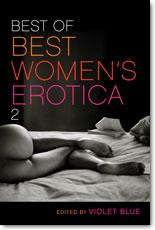

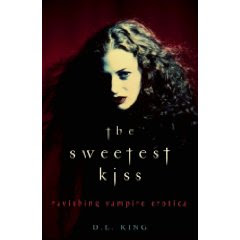


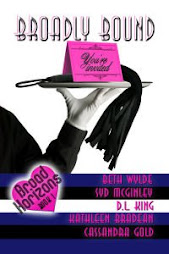.jpg)
